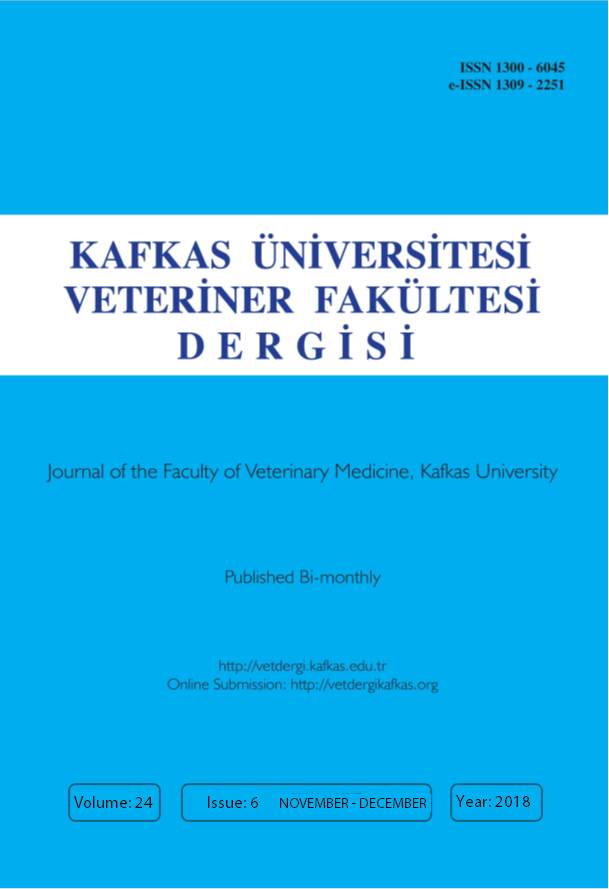
This journal is licensed under a Creative Commons Attribution-NonCommercial 4.0 International License
Kafkas Üniversitesi Veteriner Fakültesi Dergisi
2018 , Vol 24 , Issue 6
Babesia spp. in Dogs from Córdoba, Colombia
1Instituto de Investigaciones Biológicas del Trópico, Facultad de Medicina Veterinaria y Zootecnia, Universidad de Córdoba, Montería, COLOMBIA
DOI :
10.9775/kvfd.2018.19982
Canine babesiosis is a tick-borne disease with worldwide distribution, caused by intra-erythrocytic protozoa of the genus Babesia. The present study describes the clinical features and molecular detection of B. canis vogeli in dogs in Córdoba, Colombia. Blood samples were taken from dogs with clinical signs compatible with tick-borne diseases. Peripheral blood samples were examined microscopically for the presence of Babesia spp. merozoites and trophozoites. Blood sample obtained by jugular or cephalic venipuncture were used for DNA extraction. PCR assay was carried out using primers for the 18S rRNA gene of Babesia spp. of the 42 dogs suspected of babesiosis, 23 were females and 19 males. Peripheral blood examination demonstrated intraerythrocytic piroplasms compatible with Babesia spp. in 23 of 42 (54.7%) dogs. The morphometric study showed that 73% (17/23) were large babesias (2.4x5 μm) and 26% (6/23) were small Babesia (1x3.2 μm). Eleven of 42 (26%) blood samples were positive for B. canis vogeli. Clinical signs found in positive dogs were: anorexia 63% (7/11), lethargy and apathy 63% (7/11), fever 54% (6/11), pale mucous membranes 54% (6/11), lymphadenomegaly 18% (2/11), vomiting 9% (1/11) and diarrhea 9% (1/11). Blood counts showed that 70% (8/11) dogs had anemia. Leukocyte disorders were variable; 27% (3/11) had leukocytosis and 46% (5/11) had leukopenia. Sequenced samples of the 18S rRNA gene showed 99% identity with B. canis vogeli sequences from several countries.
Keywords :
Animal diseases, B. canis vogeli, Colombia, 18S rRNA gene











